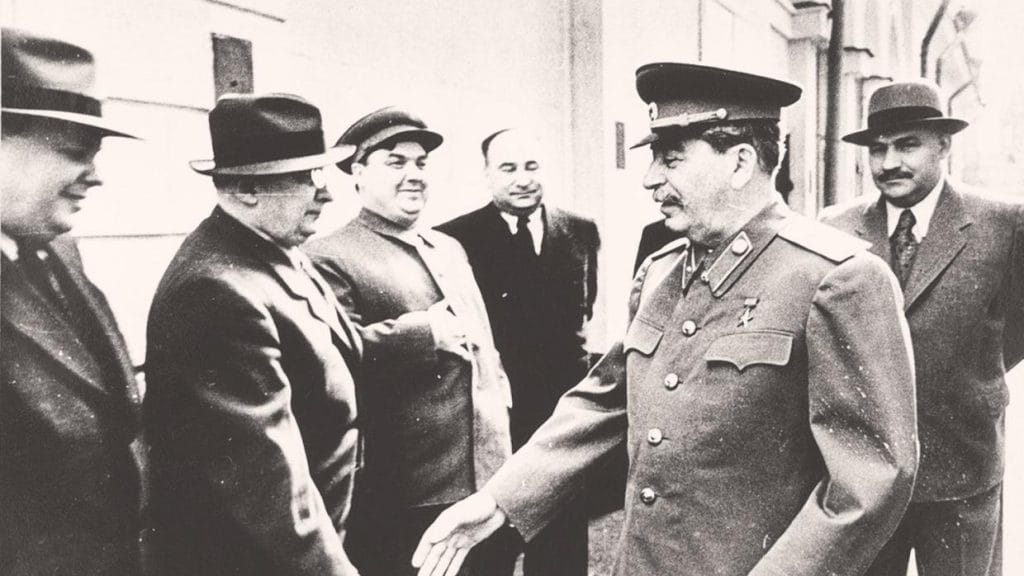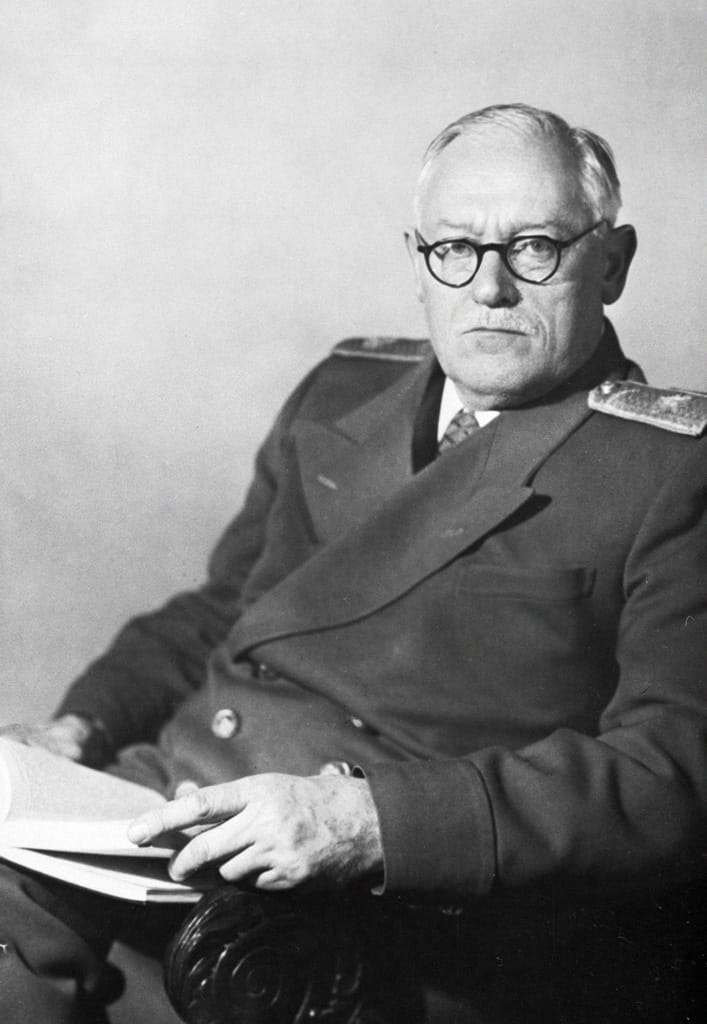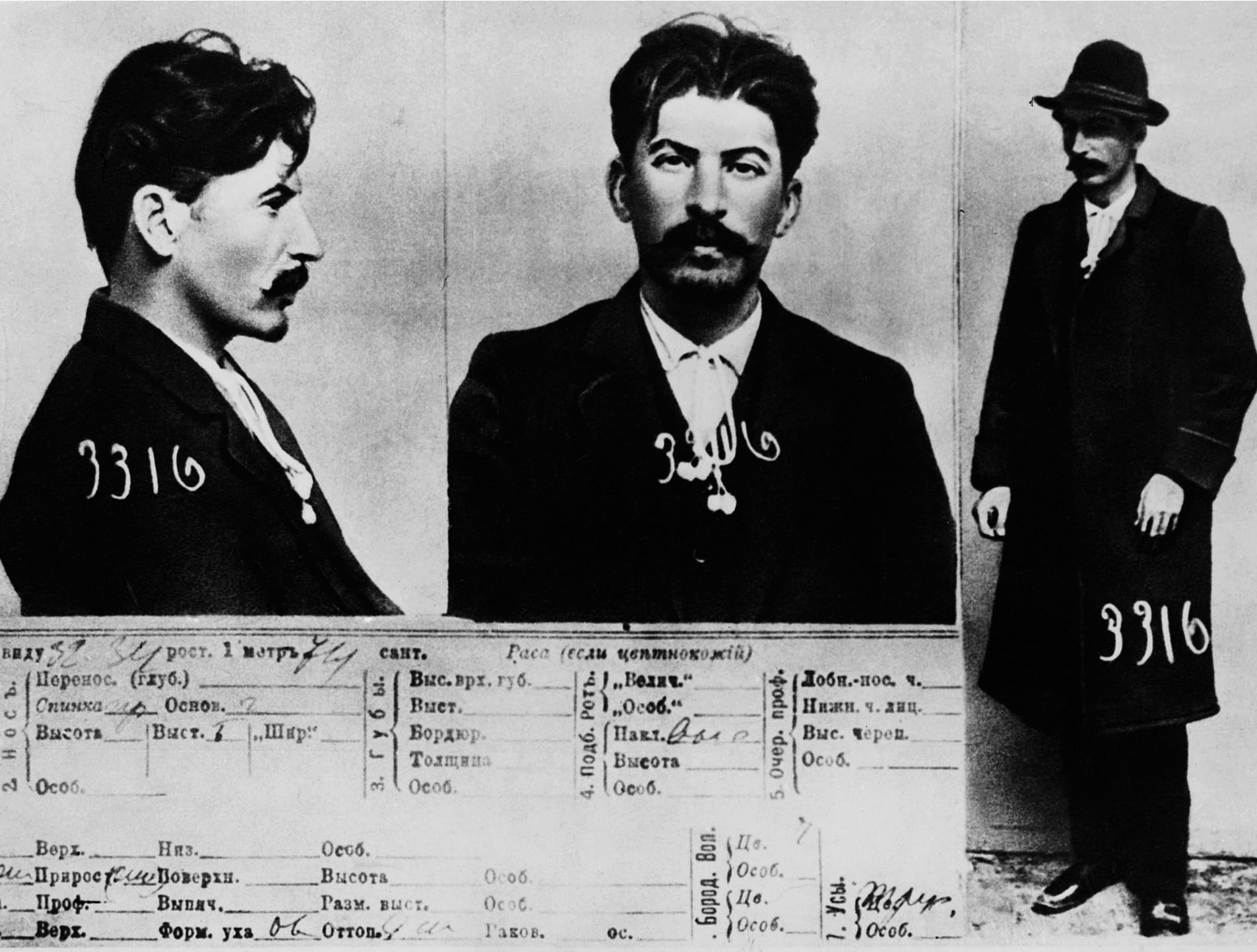This famous phrase, allegedly said by the Soviet leader, is remembered both in the context of Stalinist repressions and in relation to modern trials. We checked whether this quote belongs to Stalin.
These words can often be found in Media, social networks, blogs, journalism and literary works. Sometimes authors use this phrase without specifying the source, but more often they attribute it to the former General Secretary of the CPSU Central Committee, Joseph Stalin. Majority collections quotes and "Wikiquote" also indicate Stalin as the author of this phrase. Once upon a time Estonian politician Siret Kotka "quoted" Stalin, commenting on the search of the headquarters of one of the political parties in Estonia, carried out by the prosecutor's office under a fictitious pretext. The former head of the Latvian state energy company Latvenergo, Karlis Mikelsons, too remembered Stalin's words in connection with his arrest. Journalist Ksenia Sobchak answered with this famous phrase on the news about checking it for foreign funding.
Despite the fact that many sources name Stalin as the author of the quote, none of the references specify when, to whom and under what circumstances Stalin allegedly said such a phrase. It can be assumed that if these words belonged to Stalin, most likely he would have uttered them in a personal conversation: it is unlikely that such a controversial phrase could appear in Stalin’s official speeches or texts. Indeed, it was not possible to find it in any transcripts speeches, not in full collection his works. There is no documentary evidence of Stalin’s authorship in open sources. This phrase is not available memories contemporaries.
Where did this common phrase come from? The meaning of the statement is reminiscent of the old Russian proverbs “If there was a back, there would be guilt” or “If there was a back, there would be a whip,” described back in the 19th century in Dahl’s dictionary. Nevertheless, the phrase “If only there were a person, there would be an article,” which arose much later, is quoted on the Internet approximately 13 times more often than these proverbs.
A variant of the phrase is often found in English option: "Show me the man, and I'll find you the crime." English-language sources are almost unanimous attributed to this quote to the head of the Soviet special services, Lavrentiy Beria. “Lavrentiy Beria, the most ruthless and longest serving chief of the secret police during the Stalinist reign of terror in Russia and Eastern Europe, boasted that he could prove the crime of anyone, even the innocent. “Name me a person, and I will tell you a crime,” was Beria’s infamous boast,” writes published by The Oxford Eagle. “Beria first targeted a person, and then began to search for or fabricate a crime. His modus operandi was to convict a person first and then fill in the gaps in the case later.” Some English-language sources claimthat Beria said this phrase personally to Stalin. But in Runet, Beria is practically not mentioned as a possible author of the quote.

Another candidate for authorship is the USSR People's Commissar for Foreign Affairs Vyacheslav Molotov. IN records Molotov’s conversation with Lithuanian Foreign Minister Juozas Urbšys on June 14, 1940 contains the following lines: “Urbšys says that he does not see an article on the basis of which it would be possible to bring the Minister of Internal Affairs Skuchas and the head of the political police Povilaitis to trial. He asks what to do? Comrade Molotov says that first of all they need to be arrested and brought to justice, and the articles will be found. And Soviet lawyers can help with this by studying the Lithuanian code.” It is not known whether this idea was Molotov’s know-how or whether he only formulated a method already used in the USSR to combat people disliked by the authorities.
According to the daughter of Soviet test pilot Valery Chkalov, the famous phrase was said two years earlier by prosecutor Andrei Vyshinsky, who, along with Beria and Molotov, is called a key figure in organizing mass repressions in the USSR. In 2008, in an interview with Gordon Boulevard, daughter Valeria told: “In March 1938, father was invited to the trial of Bukharin and Rykov. It is clear what impression this outright farce could have made on him. During the break, my father approached Vyshinsky and bluntly stated: he does not believe that Lenin’s comrades-in-arms suddenly became enemies of the people. Vyshinsky grinned condescendingly in his face and answered quite calmly: “What kind of person you are, Valery Pavlovich. But is that really the point? If only there were a person, there would be an article!”

There are other versions of the origin of the phrase. Some sources believe that the quote does not belong to Beria, Vyshinsky, or Molotov. TASS Help Desk assertsthat it was “nameless KGB folklore of the last century.” Soviet writer and human rights activist Vladimir Bukovsky recalls hearing this phrase from KGB officers. In his book of memoirs “And the Wind Returns...” Bukovsky tells about the years spent in Soviet special hospitals, prisons and camps: “As if it weren’t obvious that our laws exist only on paper, for propaganda, and everywhere they turn against you. Didn’t the KGB tell us quite frankly: “If there was a person, there would be an article.” Some bloggers And Media claim that the famous quote originated as “a bitter joke among the prisoners of that time.”
Thus, we were unable to unambiguously determine the authorship of the quote. Typically, such a variety of possible "candidates" indicates the absence of one specific author. Perhaps this phrase actually crystallized from the sayings of the time. And the authorship was later attributed to Stalin, since it was he who was the face of the Great Terror, often organized according to the principle “If there was a man, there would be an article.”
Cover image: Information card on Joseph Stalin from the archives of the Tsarist secret police in St. Petersburg. 1911 Wikimedia Commons
Incorrect quote attribution
Read on the topic:
- Is it true that Stalin is the author of the phrase “It doesn’t matter how they voted, it’s important how they counted”?
- Did Stalin say: “No man, no problem”?
- Did Stalin say: “We have no irreplaceable people”?
- Did Stalin say: “The death of one person is a tragedy, the death of millions is a statistic”?
- "Amateur". Beria: executioner, rapist and initiator of the “thaw”
- "Amateur". Prosecutor Andrey Vyshinsky
- Meduza. Why did Stalin need the Great Terror and was he a good commander in chief?
If you find a spelling or grammatical error, please let us know by highlighting the error text and clicking Ctrl+Enter.






